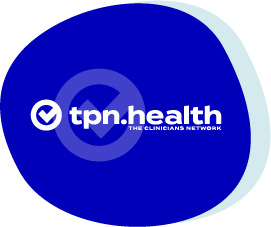Exploring Internal Family Systems: Restoring Wholeness

Exploring Internal Family Systems: Restoring Wholeness

Presented By
-
 Dr. Richard SchwartzMore Info
Dr. Richard SchwartzMore Info
Brought to You By
Dates and Times
-
-Live Webinar
-
-In-Person
Location
-
Live WebinarAccess virtually on TPN.health
-
In-Person Only: High Watch Recovery Center62 Carter Rd
Kent, CT 06757
Developed over the past four decades, the Internal Family Systems (IFS) model offers both a conceptual umbrella under which a variety of practices and different approaches can be grounded and guided and a set of original techniques for creating safety and fostering Self-connection.
We’ve been taught to believe we have a single identity and to feel fear or shame when we can’t control the inner voices that don’t match the ideal of who we think we should be. IFS challenges the mono-mind theory and offers a non-pathologizing model that delivers a route to loving, honoring, and understanding all our “parts.”
IFS has been transforming psychology for decades and has been effective in areas such as trauma recovery, addiction therapy, and depression treatment. This presentation will provide an introduction to the basics of the IFS model and its use with attachment and trauma. An overview of IFS and its clinical applications will be presented.
- • Counselors
- • Addiction Counselors
- • Social Workers
- • Licensed Marriage and Family Therapists
Participants will gain knowledge of the Internal Family Systems (IFS) model.
At the end of this course, participants will be able to:
-
Describe 4 basic theories and principles of Internal Family Systems therapy as they apply to work with trauma
-
Define the IFS model as an internal attachment model
-
Identify three effects of trauma on parts and Self
-
Describe their own parts and how those parts impact therapy
-
Explain the history and development of the Internal Family Systems model of therapy
Course meets the qualifications for hours of continuing education credit for LPCCs as required by the California Board of Behavioral Sciences. TPN.health is approved by the California Association of Marriage and Family Therapists to sponsor continuing education for LPCCs. TPN.health maintains responsibility for this program/course and its content.
Trusted Provider Network, LLC is recognized by the New York State Education Department’s State Board for Mental Health Practitioners as an approved provider of continuing education for licensed mental health counselors. #MHC-0220.
This course has been approved by TPN.health, as a NAADAC Approved Education Provider, for educational credits. NAADAC Provider #198061, TPN.health is responsible for all aspects of the programming. Counselor Skill Group: Legal, Ethical and Professional Development.
TPN.health, #1766, is approved to offer social work continuing education by the Association of Social Work Boards (ASWB) Approved Continuing Education (ACE) program. Organizations, not individual courses, are approved as ACE providers. State and provincial regulatory boards have the final authority to determine whether an individual course may be accepted for continuing education credit. TPN.health maintains responsibility for this course. ACE provider approval period: 03/31/2022 – 03/31/2025. Social workers completing this course receive 12 continuing education credits.
Course meets the qualifications for hours of continuing education credit for LCSWs as required by the California Board of Behavioral Sciences. TPN.health is approved by the California Association of Marriage and Family Therapists to sponsor continuing education for LCSWs. TPN.health maintains responsibility for this program/course and its content.
Trusted Provider Network, LLC is recognized by the New York State Education Department’s State Board for Social Work as an approved provider of continuing education for licensed social workers #SW-0654.
Course meets the qualifications for hours of continuing education credit for LCSWs as required by the California Board of Behavioral Sciences. TPN.health is approved by the California Association of Marriage and Family Therapists to sponsor continuing education for LMFTs. TPN.health maintains responsibility for this program/course and its content.
Trusted Provider Network, LLC is recognized by the New York State Education Department’s State Board for Mental Health Practitioners as an approved provider of continuing education for licensed marriage and family therapists #MFT-0097.

